Ever wondered what makes a Chihuahua so unique? Well, it’s all about their temperament! These toy breed pups, descendants of the Toltec civilization’s Techichi dogs, are known for their sass and spunk. But remember, their behavior isn’t just about genes. It also depends on how they’re raised and socialized.
Expect a rollercoaster ride when trying to understand these fiery furballs. They can be feisty one minute and cuddly the next! So, if you’re considering bringing one home, know that understanding their personality is crucial in building a solid bond with them.
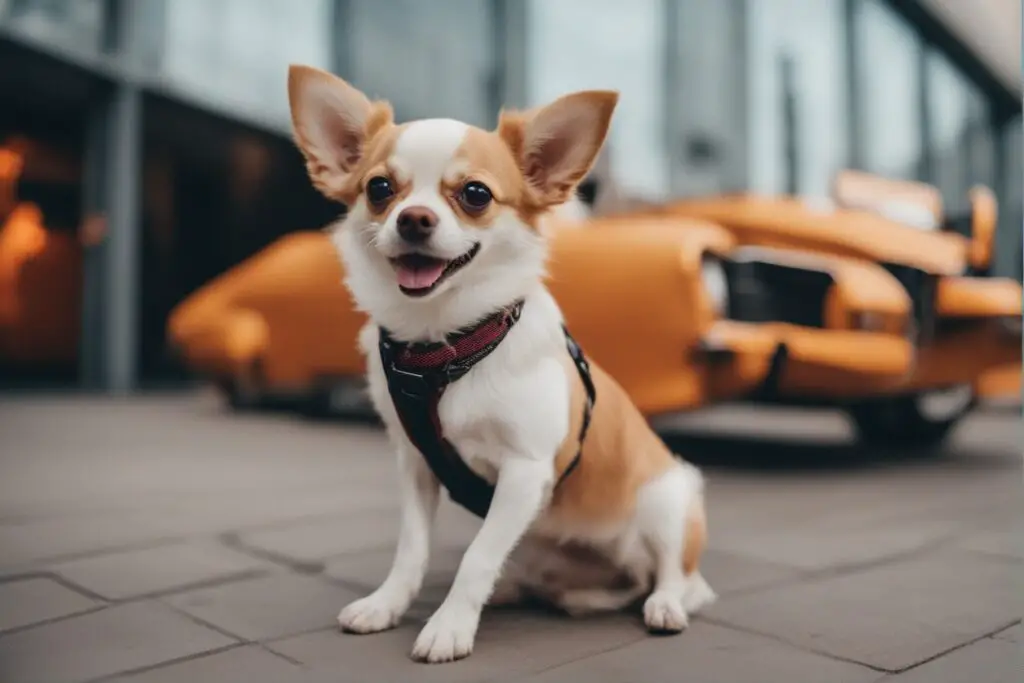
Table of Contents
- 1 Chihuahua Personality Traits Unveiled
- 2 Behavioral Aspects of a Chihuahua’s Temperament
- 3 Adaptability: Chihuahuas in Different Environments
- 4 Interactions: Chihuahuas, Children, and Other Pets
- 5 Training Your Chihuahua: A Comprehensive Guide
- 6 Health Factors Influencing Chihuahua Behavior
- 7 Wrapping Up the Chihuahua Chat
- 8 FAQ’s
- 9 Related posts:
- 10 Chihuahua Puppy Care Guide: Expert Tips & Info
- 11 Chihuahua Dog Breed: Facts, Pictures & Health Care
- 12 Discover Black Chihuahua Breeds: Pictures, Info & More!
Chihuahua Personality Traits Unveiled
Loyalty, Alertness, and Vivacity
The chihuahua dog breed, often called ‘chi,” is known for its big personality. Despite their small size, these dogs are full of energy and vivacity that can brighten up any owner’s day. They’re fiercely loyal, always on alert, and ready to protect their loved ones immediately.
- Loyalty: A chihuahua dog will stick by its owner through thick and thin.
- Alertness: With eyes that miss nothing, they’re always on the lookout.
- Vivacity: Their boundless energy can fill a room with joy.
Intelligence and Stubbornness
But there’s more to this dog breed than meets the eye. Beneath the smooth or long coat varieties (yes, they come in two hair types) lies a brain that craves stimulation. Chihuahuas are surprisingly intelligent – don’t let their fame for being cute fool you! However, with intelligence comes stubbornness. Proper training your chi may require some patience.
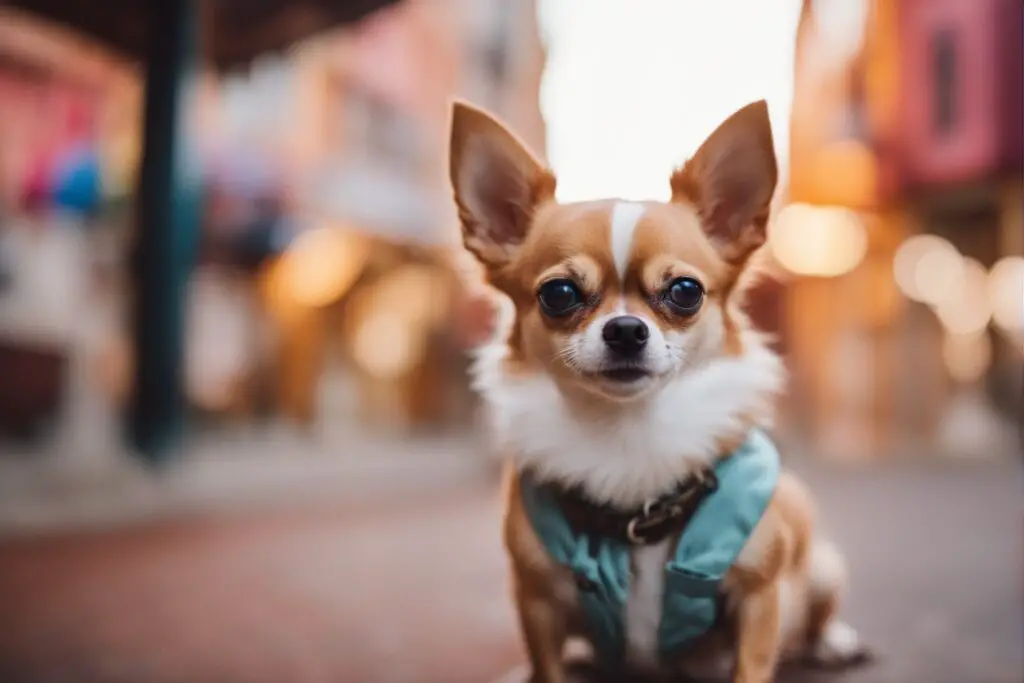
- Intelligence: These dogs love puzzles and games that challenge them.
- Stubbornness: But be warned – they won’t back down easily!
Impact on Behavior
So how do these traits shape the behavior of this dog breed? For starters:
- Their loyalty makes them fantastic companions – they’ll follow you to be close to you from room to room.
- The alertness means they’re excellent watchdogs – even if their bark is more significant than their bite!
- Their vivacity ensures there’s never a dull moment around them.
- Intelligence means they need mental stimulation – boredom can lead to destructive behaviors.
- And yes, the stubbornness might mean it takes a few tries before your chi learns not to jump on the furniture.
Owning a chihuahua is like having a deer-like creature with an oversized head (for its body), prominent personalities packed into a tiny body with genes wired for loyalty and alertness yet mixed with stubborn intelligence!
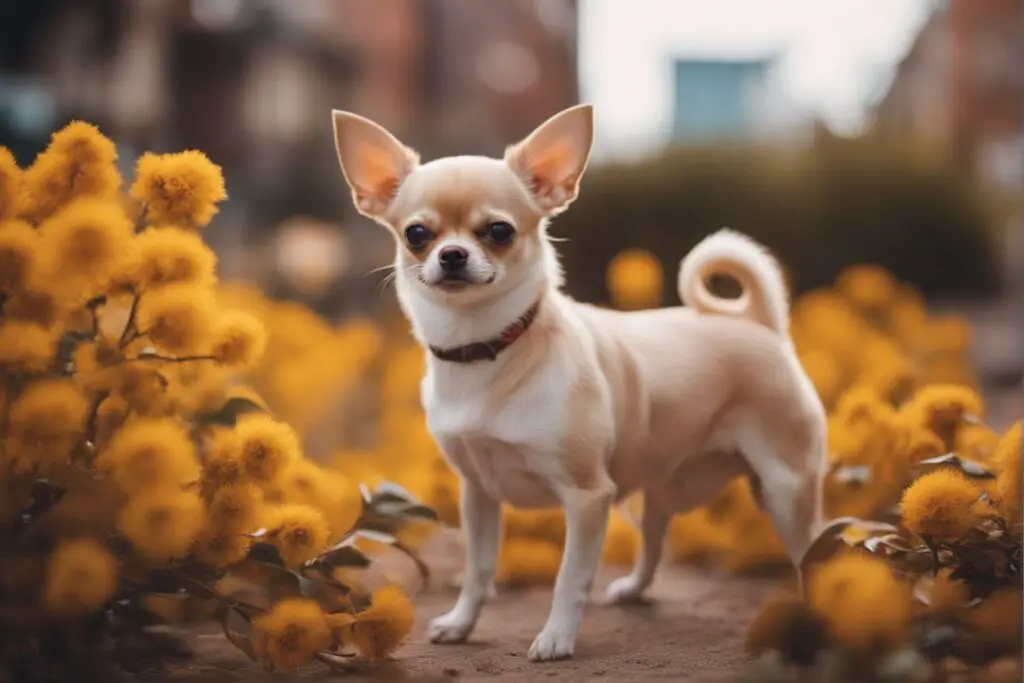
Behavioral Aspects of a Chihuahua’s Temperament
Typical Behaviors
Chihuahuas are known for their unique behaviors. They display habits like:
- Barking: An expected behavior often triggered by unfamiliar sights or sounds.
- Digging: They might explore your backyard or even your couch!
- Nipping: Mostly seen in puppies but can persist if not addressed.
These behaviors aren’t necessarily behavioral issues. It’s just the chihuahua way!
Individual Personalities
Just like humans, every Chihuahua has its personality. Some might be shy and reserved, while others could be outgoing and energetic. Their behavior can change based on their mood, environment, or even the time of day.
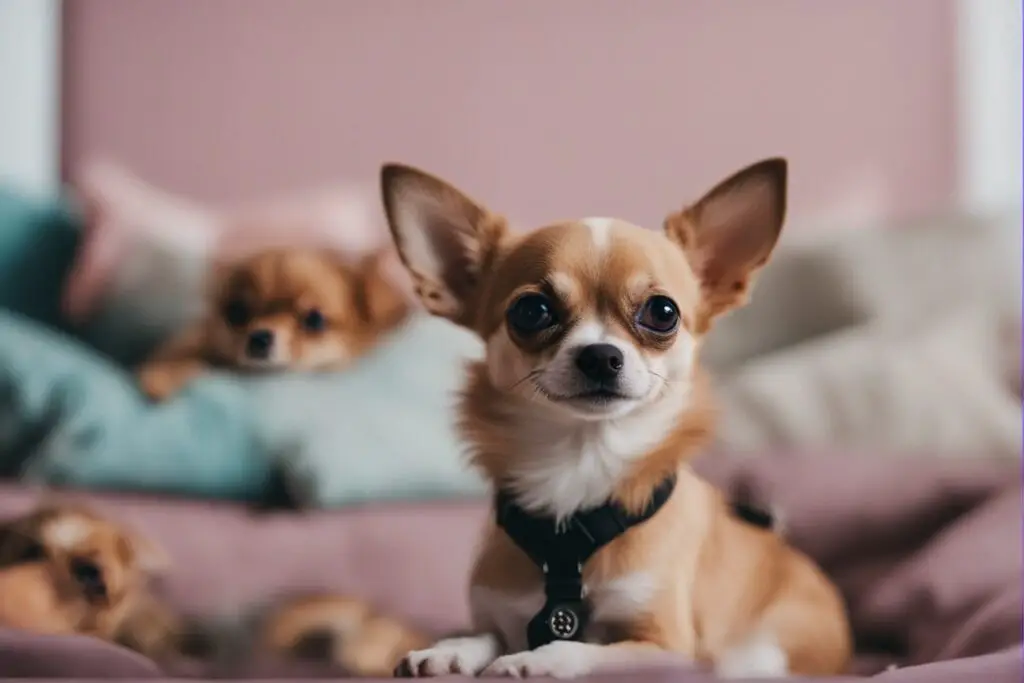
Misconceptions about Behavior
There’s a misconception that chihuahuas are aggressive or antisocial. This is far from the truth! They may have a big bark for such small pups, but it doesn’t mean they’re ill-natured.
Remember:
- Aggression isn’t inherent; it’s usually due to fear or poor socialization.
- Antisocial behavior is often mistaken for independence.
Knowing these facts helps us understand the true nature of a chihuahua’s temperament!
So next time you see a chihuahua barking up a storm or digging to their heart’s content, remember this isn’t an issue—it’s just part of being a spirited little dog with lots of personality!
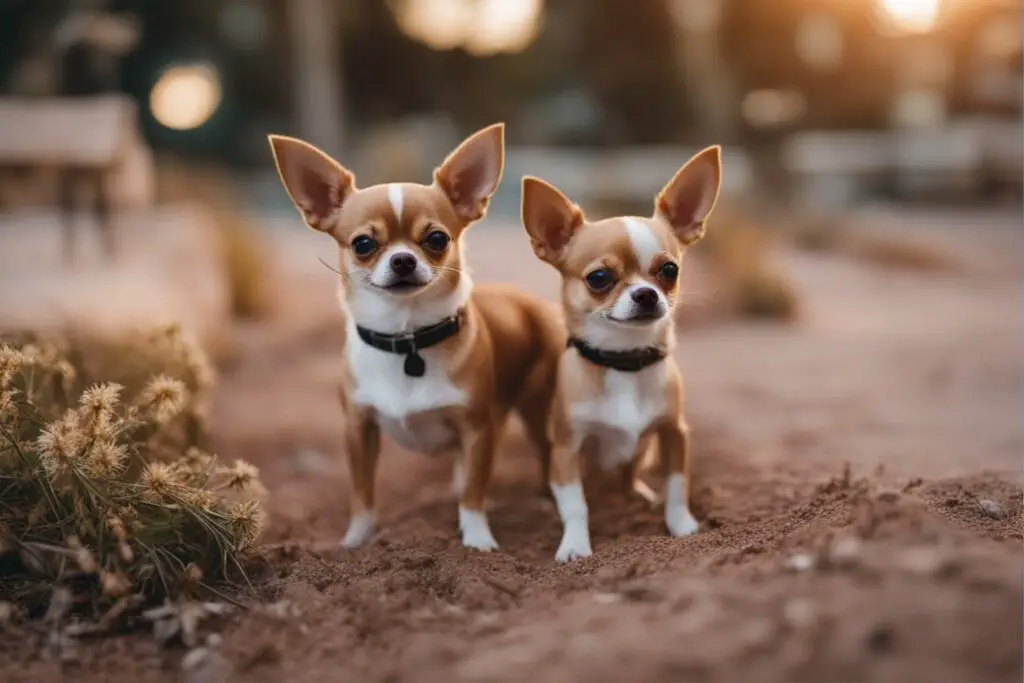
Adaptability: Chihuahuas in Different Environments
Urban vs. Rural Living
Chihuahuas, a small breed with enormous energy, adapt well to apartment living. Their size makes them ideal for city life. They don’t need much room to run around and can get their exercise indoors. But don’t let their size fool you; these little guys can also stand their ground in rural settings.
Climate Considerations
This breed’s adaptability extends to weather conditions as well. However, there’s a catch! Their slight build and lack of a double coat make cold weather a problem. So if you’re living somewhere with harsh winters:
- Keep your Chihuahua warm
- Limit time spent outdoors
- Consider buying doggy sweaters
In contrast, they enjoy basking in the sun and can handle hot climates better.
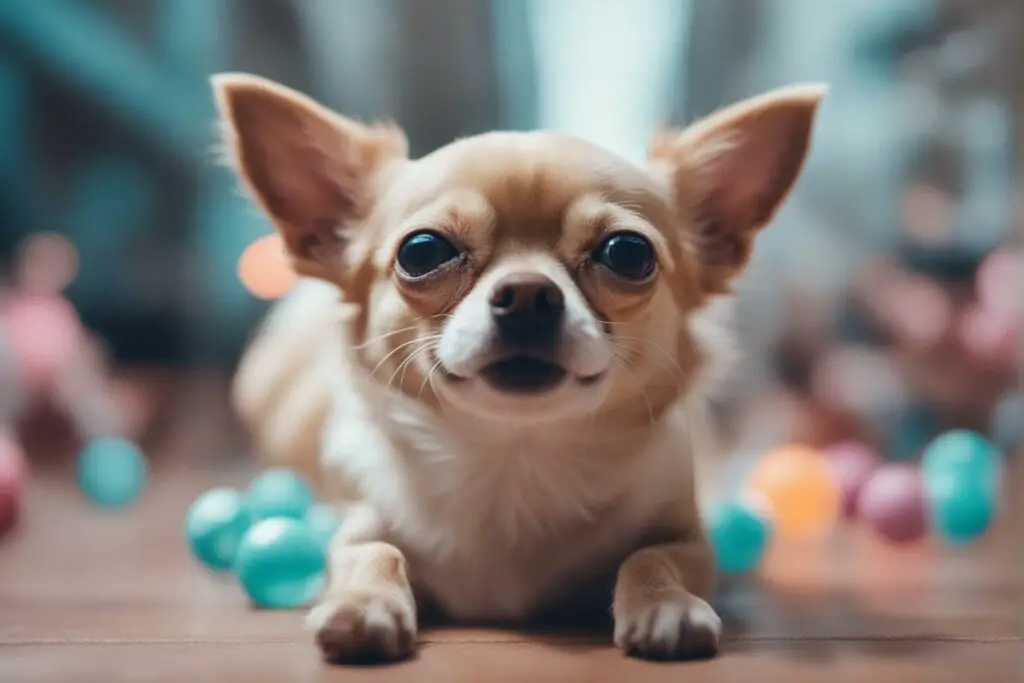
Traveling Companions?
Love traveling? Your Chihuahua might not share the same enthusiasm. Due to their size and temperament, frequent location changes could stress them out. If travel is non-negotiable:
- Give them time to adjust.
- Make sure they have familiar items at each new location.
- Be patient.
Remember, every Chihuahua is unique – some may love an air-filled travel adventure, while others prefer the comfort of home!
So whether it’s city or country living, hot or cold weather – this breed has covered it! Remember their specific needs based on size and build before drastically changing the environment or routine.
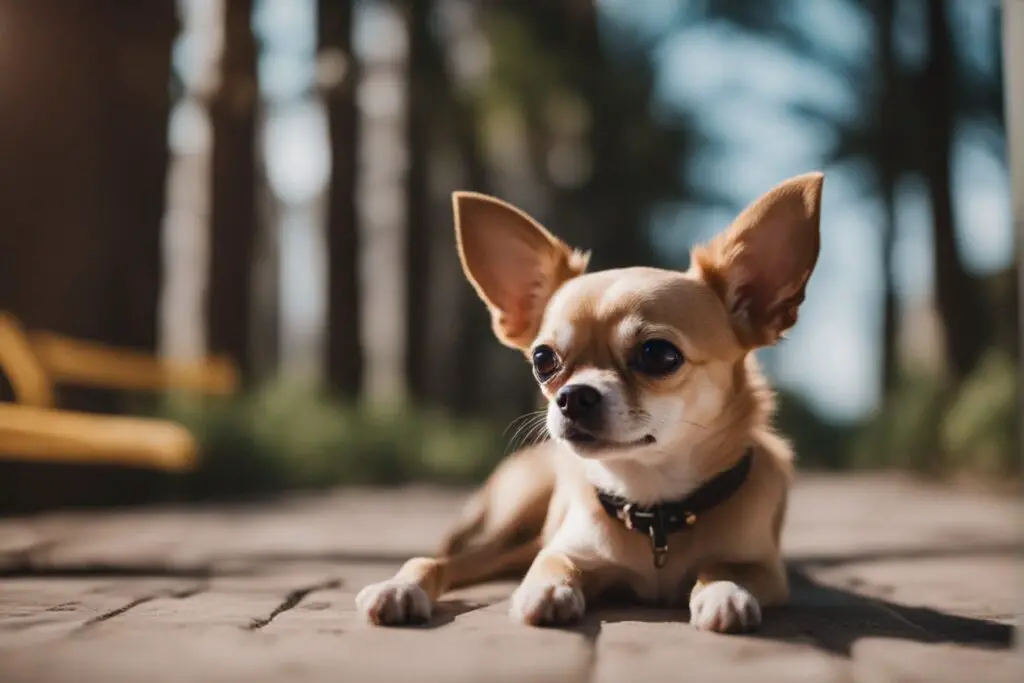
Interactions: Chihuahuas, Children, and Other Pets
Child-Size Precautions
Chihuahuas are small dogs. Their petite size means extra care around young children. Kids might view puppies as fun toys instead of living animals. Parents must teach their children to handle pets gently to avoid problems.
- Tip: Supervise interactions between kids and chihuahuas.
- Remember: Small dogs can get hurt easily.
Compatibility with Other Pets
Chihuahuas may struggle in homes with larger breeds. Despite their size, they’re aggressive and often unaware of their small stature. This can lead to confrontations with bigger dogs.
- Note: Watch for signs of anxiety or aggression in your pet.
- Fact: Some chihuahuas excel at dog sports, showing they can get along with others.

Tips for Successful Introductions
Introducing a new family member requires careful planning. Here’s a simple guide:
- Start introductions in a neutral space.
- Keep the first meeting short and positive.
- Gradually increase the time spent together.
Not all experiences go smoothly from the start—the same goes for introducing chihuahuas to new beings!
Example: If your pet seems scared or aggressive, step back and try again later.
Remember, every Chihuahua has its temperament! Understanding it will help create a harmonious family experience.
Training Your Chihuahua: A Comprehensive Guide
Early Socialization is Key
Training your Chihuahua’s temperament starts with early socialization. It’s like teaching kids to share their toys; the earlier, the better.
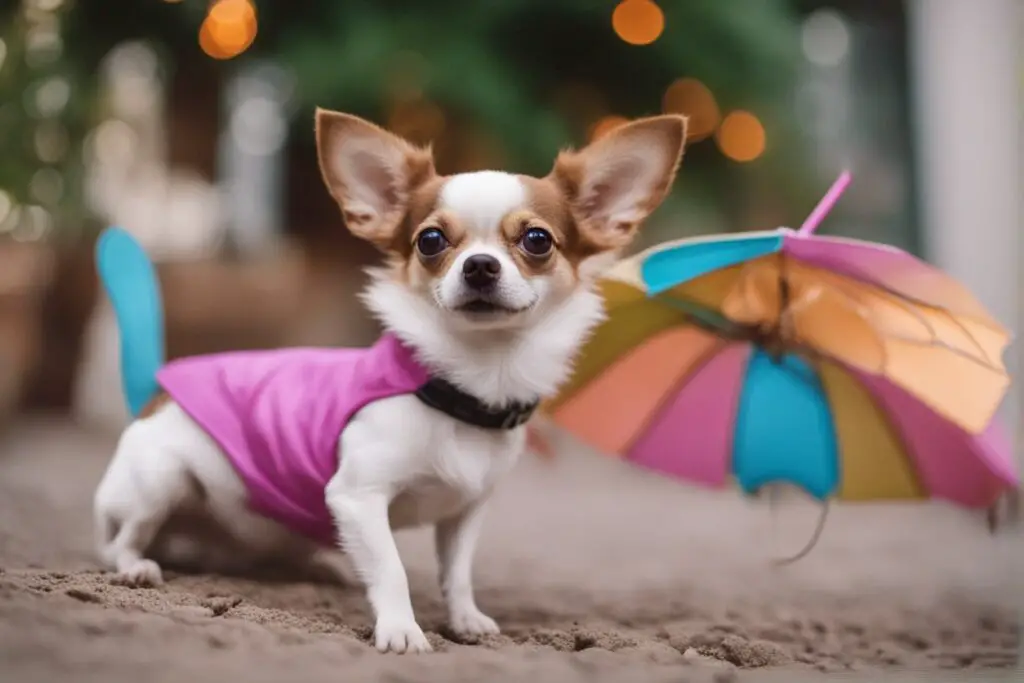
- Introduce them to different environments.
- Let them meet other dogs and humans
- Expose them to various sounds and experiences
This dog care information is crucial for a balanced temperament.
Tackling Stubbornness
Chihuahuas have a reputation for being stubborn. But don’t let that discourage you! Here are some effective training techniques:
- Keep sessions short and fun
- Be consistent with commands
- Use distractions to train focus
Remember, potty training can be challenging due to its stubborn nature.
Positive Reinforcement Works Wonders
Forget punishment-based methods. Positive reinforcement is the way to go with chihuahuas. Just think about it:
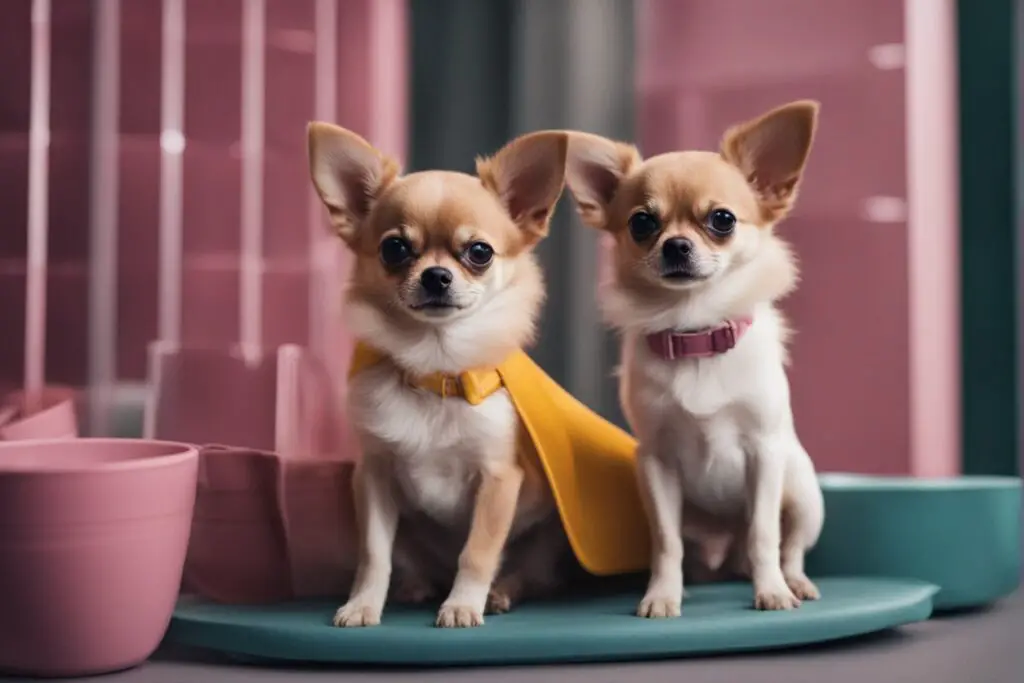
- Instead, Would you work for a boss who yells or praises you?
- Do you respond better to criticism or encouragement?
The same principles apply here.
- Reward good behavior immediately.
- Ignore unwanted behavior.
- Use treats, toys, or praise as rewards.
Training your Chihuahua doesn’t have to be a struggle if you understand their temperament and use these tips effectively!
Health Factors Influencing Chihuahua Behavior
Dental Issues and Behavior Changes
Chihuahuas often face health issues like dental problems. Their tiny jaws can lead to overcrowding of teeth, causing discomfort or pain. This health problem might make your Chihuahua act out, becoming more aggressive or withdrawn.
- Monitor for changes in eating habits.
- Look for excessive drooling.
- Regular vet check-ups are essential.
Aging and Temperament
Just like humans, dogs experience changes in their temperament as they age. For chihuahuas, this could mean becoming more irritable or less active due to health issues associated with aging, such as arthritis or loss of vision.
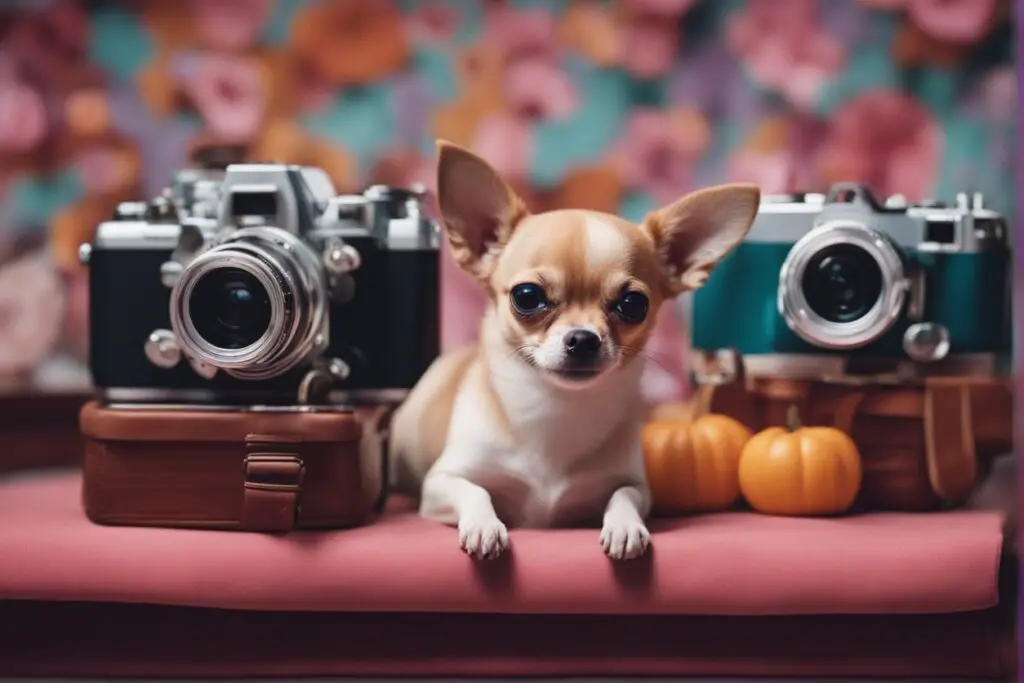
- Regular exercise can help keep them active.
- Mental stimulation is crucial to prevent senility.
Genetic Predispositions
Certain behaviors in chihuahuas can be traced back to their genetic predispositions. Some may naturally be more territorial, while others might have a higher prey drive.
- Research your dog’s lineage if possible.
- Understand that training can mitigate but not entirely change these behaviors.
Remember, regular health clearances by a vet are crucial to ensure your Chihuahua remains healthy and happy!
Wrapping Up the Chihuahua Chat
Alright, we’ve covered a lot of ground on our tiny friend, the Chihuahua. From their aggressive personality traits to adaptability in different environments, these little guys sure pack a punch! We’ve also touched on their interactions with kids and other pets, how to train them effectively, and even how health factors influence their behavior.
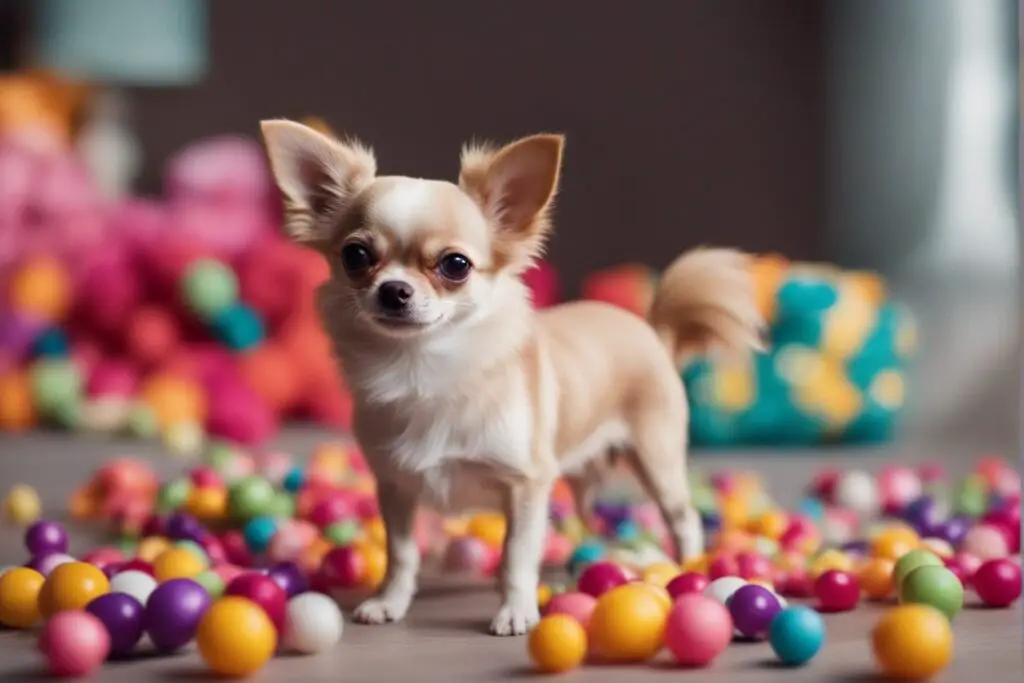
So what’s next? Well, that’s up to you! If you’re considering adding a Chihuahua to your family, remember they’re more than just cute faces. They’re lively companions who need love, care, and understanding like any other pet. So go ahead, take the plunge, and embrace the unique temperament of a Chihuahua. You won’t regret it!
FAQ’s
Are Chihuahuas suitable for first-time dog owners?
Chihuahuas can be great for first-time dog owners if you are prepared for their energetic personalities and specific training needs.
Do Chihuahuas get along with other dogs?
Chihuahuas can get along well with other dogs if adequately socialized from a young age.
How often should I train my Chihuahua?
Training should be consistent but not overwhelming. Short daily training sessions are generally best.
What health issues should I watch out for in my Chihuahua?
Common health issues include dental problems due to their small mouths and heart disease. Regular vet check-ups are essential.
Can I keep a Chihuahua in an apartment?
Yes! Their small size makes them suitable for apartment living as long as they exercise enough.
Are Chihuahuas good with children?
With proper socialization and supervision, Chihuahuas can be wonderful companions for older children who understand how to handle small dogs gently.